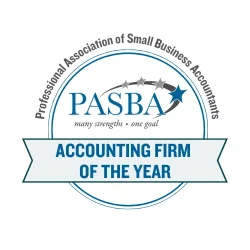As a business owner, one of your top priorities is attracting and retaining top talent. Your employees are the driving force behind your company’s success, and offering attractive benefits can be a key factor in keeping them happy and motivated. Retirement benefits, in particular, are crucial for ensuring your employees have a secure future and feel valued by your company.
But it’s not just employees who benefit from retirement planning – you can also reap the rewards. A robust retirement plan can attract top talent, increase employee retention, and even provide tax benefits for your business. However, setting up and managing a retirement plan can be complex and overwhelming. The following guide will help you navigate the process of understanding, implementing, and managing an employee retirement plan with our help at JR Martin & Associates.
Understanding The Current Landscape Of Retirement & Benefits
The traditional pension plans that were once common have now been replaced by employer-sponsored retirement plans, such as 401(k)s and IRAs. This shift has placed a greater responsibility on employees to fund their own retirements, making retirement planning even more crucial.
Moreover, the current workforce consists of multiple generations with different priorities and expectations when it comes to benefits. Millennials, for example, are more likely to value work-life balance and personal development opportunities, while baby boomers may prioritize retirement benefits. As a result, employers must consider a diverse range of needs when designing employee benefit packages.
Additionally, the current landscape of retirement planning is constantly evolving as a result of changes in legislation and economic conditions. For example, the introduction of the SECURE Act (passed in 2019) and the SECURE ACT 2.0 (passed in 2022) brought significant changes to retirement plan rules and regulations.
The SECURE ACT was meant to help address the challenges Americans have historically had saving money for retirement. Its goal was to make it easier for employers to offer tax-advantaged savings plans and for employees to participate in them. This act increased the cap on contributions for automatic enrollment safe harbor plans and expanded eligibility for part-time employees.
The current landscape of retirement planning and employee benefits is constantly changing, requiring business owners to stay informed and seek professional guidance as a result.
Why Offer Retirement Plans To Employees?
Offering retirement plans to employees can bring numerous benefits to business owners. Here are some of the top advantages.
Attract And Retain Top Talent
In today’s competitive job market, offering attractive benefits to stand out and attract top talent is essential. A robust retirement plan can be a major selling point for potential employees, especially for those who prioritize long-term financial security. Moreover, offering a retirement plan demonstrates your commitment to your employees’ well-being and future. This can boost employee morale and foster loyalty, leading to increased retention rates.
Foster Employee Loyalty
Providing retirement plans also shows that you value your employees and the hard work they put into your business. This can foster a sense of loyalty among your employees, leading to a more engaged and productive workforce. After all, employees who feel that their employer cares about their future are more likely to have an interest in the company’s success.
Acquire Tax Benefits
The government incentivizes employers to provide retirement plans, recognizing the importance of long-term financial stability for employees. This means that setting up a retirement plan can also bring tax benefits for your business.
• Tax deductions are earned by contributions made to the plan up to certain limits.
• Salary reduction contributions are not subject to payroll taxes.
• Employment taxes, such as Medicare and Social Security, are reduced on employees’ salary reduction contributions.
• Distributions on 401(k) Roth plans are tax-free, providing employees with a valuable retirement savings option.
• Tax credits are available for small businesses that set up new retirement plans.
Options For Employer-Sponsored Retirement Plans
No two retirement plans are exactly alike, and it’s essential to choose the right plan for your business. The following are the main types of employer-sponsored retirement plans to consider.
Defined Contribution Plans
A defined contribution plan is a type of retirement plan where employers set aside a certain amount of money each year for their employees based on predetermined formulas. This can include employer contributions, employee salary deferrals, or a combination of both. Unlike defined benefit plans, the eventual payout is not guaranteed. It depends on investment performance and the individual contributions made to the plan.
Defined contribution plans are becoming increasingly popular due to their flexibility and portability. They are flexible because employees can choose how much they want to contribute, and they are portable because employees can keep their accounts even if they change jobs. This provides employees more control over their retirement savings and can be attractive to members of younger generations, who tend to change jobs more frequently.
There are four common types of defined contribution plans.
• 401(k) plans: A 401(k) lets employees contribute a part of their salary to their retirement plan. Employers can then match a part of the employee’s contributions. These plans are popular among businesses of all sizes as they offer tax benefits for both employers and employees.
• Simplified Employee Pension (SEP) IRAs: These plans are popular among small businesses as they are easy to set up and can provide significant tax benefits. Employers make contributions to each employee’s IRA, and the amount is based on a predetermined formula. For example, employers may contribute up to 25% of the employee’s salary or a maximum set amount.
• SIMPLE IRA plans: Similar to 401(k) plans, SIMPLE IRA plans allow employees to contribute a portion of their salary towards retirement, and employers must make either matching or non-elective contributions. The main difference is that these plans are only available for smaller to mid-sized businesses with 100 or fewer employees.
• Profit-sharing plans: These plans allow employers to share a portion of the company’s profits with employees as contributions towards their retirement savings. The amount can vary each year, depending on the company’s profits.
Defined Benefit Plans
A defined benefit plan is a type of pension plan where the employer is responsible for funding the plan and promises a lump sum, a specific monthly benefit, or a combination of the two to employees upon retirement.
A defined benefit plan is determined by the employee’s salary, years of service, and age rather than individual investment returns. This type of plan provides employees with a guaranteed income stream in retirement, making it a popular choice for those seeking long-term stability.
Employee Stock Ownership Plans (ESOPs)
Employee stock ownership plans (ESOPs) are another type of defined contribution plan where employers can offer employees the opportunity to acquire stocks in the company they work for. An ESOP lets employees have a stake in the company’s success and provides them with potential long-term financial benefits.
As a result, employees will gain some control rights as well as voting rights within the company. Once they leave, they will receive their stocks, which your company will have to buy back from them at fair market value. As a result, the employee will get the value of their shares, usually in the form of cash.
How To Set Up A Retirement Plan For Your Business
Setting up a retirement plan can be a little overwhelming. After all, there are various types of plans to choose from, and each may have different rules and regulations. With that in mind, the following are some steps you should follow to set up a retirement plan for your business.
Choose A Plan Type
When it comes to securing your financial future and ensuring a comfortable retirement, choosing the right retirement plan for your business is the crucial first step. It can be a daunting task, but fear not – your trusted tax professional is here to guide you through this maze of options.
Your business’s size, budget, and potential tax implications all play a significant role in determining the most suitable retirement plan. Your tax advisor can be your saving grace as they meticulously analyze these factors and run various scenarios to determine which plan will yield the maximum benefits. They’ll help you navigate the intricate world of retirement planning, considering how the chosen plan impacts both you and your employees. The key is to select a plan that aligns seamlessly with your business goals and addresses your specific needs.
Don’t let retirement planning overwhelm you. Consult with your tax professional, chart a course that suits your business, and embark on a journey towards a secure and prosperous retirement.
Work With Financial Institutions Or Providers
Once you have chosen a plan type, you will need to work with financial institutions or providers to establish the plan. These can include banks, insurance companies, investment firms, or third-party administrators. They will assist in setting up the necessary documents and accounts for your retirement plan.
Create An Employee Communication Plan
Proper communication is essential when implementing a retirement plan for your business. It is crucial to inform your employees about the plan, its benefits, and how to participate. Consider hosting information sessions or providing written materials to ensure that all employees are aware of the plan.
Coordinate Payroll Deductions
If your retirement plan includes employee contributions, you will need to coordinate the payroll deductions with your chosen financial institution or provider. This is essential to ensuring employees’ contributions are accurately and promptly deposited into their retirement accounts.
Comply With Legal Requirements
Complying with all legal requirements is vital when setting up a retirement plan for your business. If you have any questions or concerns, it is best to consult with a legal or financial advisor. Non-compliance can result in penalties and potential legal issues. The first thing you need to do is obtain a tax identification number for your plan. Then, make sure you adhere to Employee Retirement Income Security Act (ERISA) regulations, which include:
- Providing plan documents to employees
- Filing annual reports with the IRS and Department of Labor
- Monitoring plan fees
- Passing nondiscrimination testing for plans with employee contributions
- Following fiduciary responsibilities.
Streamline And Optimize Your Employee Benefits With J.R. Martin & Associates
At J.R. Martin & Associates, we understand the importance of offering competitive employee benefits to attract and retain top talent. That’s why we offer numerous services to help businesses streamline and optimize their employee benefits. Our experienced team can assist with every step of the process, from choosing the right retirement plan for your business to managing it effectively. The following are some ways we can help you with your employee benefits:
Employee Education
Educating your employees about their retirement plan options and tax implications is crucial for the success of your plan. Our team can work with you to develop educational materials or host workshops to ensure that your employees understand the benefits of the retirement plan and how it fits into their overall financial goals.
Setting Up Retirement Plans
Choosing the right retirement plan for your business is crucial, and it may require guidance from a certified public accountant (CPA). A CPA has the expertise to evaluate your business’s financial situation and goals and recommend the most suitable retirement plan.
At J.R. Martin & Associates, we have extensive experience helping businesses select and set up the most suitable retirement plans for their specific financial situation and goals. This collaboration ensures that businesses receive comprehensive and personalized retirement plan solutions.
Financial Analysis And Audits
Offering retirement plans and other employee benefits can have significant budgetary implications for your business. With our financial analysis services, business owners can gain a better understanding of the costs associated with offering these benefits and make informed decisions about their budget allocation.
Furthermore, some retirement plans may require annual audits to ensure compliance with regulatory standards. We offer audit services for retirement plans to make sure your business remains compliant and avoids potential penalties. This service provides peace of mind for business owners, knowing that their retirement plan is in good standing with regulatory requirements.
Tax Planning
Taxes can be a significant factor when it comes to retirement planning and employee benefits management. For example, retirement contributions may be tax-deductible for both the employer and employee, potentially providing significant savings. On the other hand, distributions from retirement accounts may be taxable, and there may be penalties for early withdrawals.
Our team can provide businesses with a thorough explanation of the tax implications for each benefit outlined in our services, including employer retirement plan contributions, health insurance premiums, and other employee perks. This information can help you make strategic decisions regarding your employee benefits while minimizing your tax burden.
Regulatory Considerations & Annual Reporting
As a business owner, it’s essential to remain compliant with regulatory requirements related to employee benefits, especially retirement plans. This may include annual reporting and disclosure obligations with the IRS and the Department of Labor. Working with a certified public accountant like J.R. Martin & Associates can ensure these requirements are met accurately and timely, avoiding potential penalties or legal issues. We offer federal and state tax filing services to help your business with the following:
• Tax filings and regulatory compliance: Our team can assist with tax filings and regulatory compliance for all employee benefits, including retirement plans. Ensuring these filings are accurate and timely is crucial to avoid penalties and maintain regulatory compliance. These filings include preparing W-2s, 1099s, and other related year-end reports for employees. These forms are required for employees who have received taxable income or non-wage compensation, such as retirement plan contributions. We can ensure that these forms are completed accurately and filed on time.
• Annual reporting and disclosure requirements: We can assist with preparing and filing the annual reports required by regulatory bodies for employee benefits. This ensures that your business remains compliant with all disclosure requirements. For example, preparing Form 5500. This form is required for most retirement plans and outlines information about the plan, such as contributions, participants, and expenses. Our team can ensure this form is accurately completed and filed on time.
Plan Amendments & Updates
We understand that regulatory requirements for retirement plans may change over time, and it can be challenging for businesses to keep up. That’s why J.R. Martin & Associates offers ongoing monitoring services to ensure plan compliance and identify any necessary amendments or updates. Our team stays updated on all the latest regulations and can assist your business in implementing changes to your retirement plans seamlessly. Our business regulations assistance service helps you remain compliant and ensures that your retirement plans are taking advantage of any new opportunities or benefits available.
Record Keeping & Documentation
Accurate record-keeping for businesses offering employee benefits, such as retirement plans, is critical. We can assist in creating and maintaining organized records of all contributions, participant data, and other necessary documentation to ensure compliance and reporting requirements are met. Our bookkeeping service not only saves businesses time but also helps them avoid potential issues or disputes with employees regarding their benefits.
Shape Your Legacy With Our Retirement Planning & Benefits Services
Offering attractive employee benefits, such as retirement plans, can significantly impact your business’s success and your employees’ financial future. With our help, you can determine which valuable perks to offer your employees while ensuring compliance with regulatory requirements. At J.R. Martin & Associates, we can assist in tax planning, annual reporting, plan amendments and updates, and record-keeping to help you shape your company’s legacy and secure a prosperous future for both yourself and your employees.



